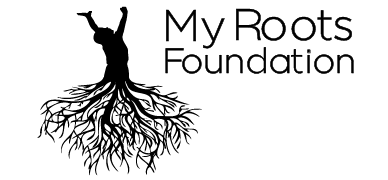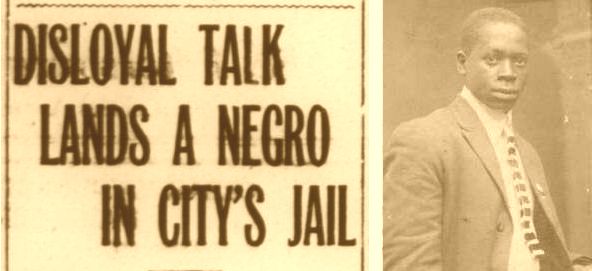19 Feb
2017
How to Avoid Pitfalls In Family History Discovery and Sharing – Part Two
Avoid Pitfalls In Family History Discovery and Sharing
Part Two
In your family history detective work, you should strive to avoid pitfalls. In the first scenario we talked about an experience in which you share your findings online and suddenly you find that you have been cut off from that newly discovered family tree. When you question the online tree owner, s/he informs you that you could not possible related to them because of xyz.
The photo above is of an actual newspaper headline and a photograph of my grandfather, Ned Felder. I still remember the day I discovered this clipping from a 1918 Florida newspaper. We all hope to find new and interesting items concerning our ancestors when we set out on our genealogical journeys; but finding out my ancestor made headlines for being jailed was not exactly what I had anticipated.
In this part of “Avoid Pitfalls In Family History Discovery and Sharing” we discuss the experience where you make a family discovery that uncovers a negative finding or a deep dark hidden secret and now a family member (or group of family members) is upset with you. Remember Ben Affleck on PBS, Finding Your Roots. There are some family stories that have been carefully hidden, deliberately not talked about, and some people will not appreciate the uncovering of those stories.
Question: Why don’t my family members want to know the ‘real’ story about our past?
Why won’t anybody talk about it?
You have uncovered a deep dark or hidden secret, you are not “unfriended’ because it’s family – they cannot just get rid of you. After all, you don’t get to pick your family. However, you get an earful of criticism when you bring up the “family secret.” Or worst yet, your invitation to the next family event is ‘lost in the mail’.
I worked with a woman once who knew nothing about her father’s side of the family. He had been shifted around from family member to family member all of his childhood and as soon as he was able, he ran away from home. The family lore was that his dad had been lynched in the Deep South sometime during the Jim Crow era and that his mother had given him away to other family members.
I began my search following the lynching story. There are a number of record concerning lynching in America, notably the works published in 100 Years of Lynchings by Ralph Ginzburg and more recently the work Lynching in America: Confronting the Legacy of Racial Terror program. When I found no mention of her relative’s name here after looking at all the record sources available for a mob killing and/or lynching I decided to expand my search to ‘legal’ executions. Turns out her grandfather committed multiple murders and was executed by the State for these murders.
I found newspaper articles about the crime. I contacted the State Prison to obtain more information and they responded with his criminal reports and I even got a series of his mugshots. She was so excited. Not only had she never seen a photo of her grandpa (who bore a striking resemblance to her dad) but also now, she knew his name, his date of birth, where he lived. Just a treasure trove of information. She was ecstatic. Her first call was to one of her siblings. Eventually she noticed the silence on the other end of the phone and then he spoke.
“Why? Why are you telling me this? Grandpa was a serial killer, executed by the state for horrible crimes – and this excites you?”
The feeling was like the scene out of the movie Hitch where the Will Smith character reveals to the woman he likes and is really trying to impress that he found her ancestor on the rolls at Ellis Island. He takes her there and shows her his discover of “The Butcher Of Cadiz!” only to discover that this was not an occupational title but a news headline concerning her murderous ancestor.
Answer: Sometimes family members want to protect a reputation or avoid an emotional upset – but I believe you should always Tell The Truth.
This is a pitfall you may not be able to avoid, but you can make it a shallow pit – maybe. There is no way to avoid this one. The truth is what it is. You cannot control (or predict) how you or family members will respond to “bad” news about an ancestor. What you can strive to do is to present the truth as simply and straight forward as possible.
You do research on your family and discover your ancestor owned slaves? Don’t run from it; tell the kids in fact, some would argue that the lessons children learn when they know both the good and the bad of their family narratives helps them to chart their own course. These narratives can show them that they don’t have to follow the path of what their less-than-stellar ancestors did. They also learn that they are part of something bigger than themselves.
In 2015 a group of Eighth Graders In Raleigh Uncover Family Secrets, Stories In Classroom. In the article, a thirteen-year-old shares a story she was initially hesitant to talk about.
“My dad went to jail,” she says.
For her project, she explored her upbringing and in the process learned more about her dad’s encounters with the law through police records.
In the end she says that she “never understood to the full extent why he was always so hard on me on about school, and I found out he didn’t go to high school and he wants me to do better.”
In an article at How children benefit from learning their family history – CNN.com A. J. Jacobs, is quoted as saying “… we all have horrible, horrible relatives.” My own family has its share of criminals: con artists, thieves, murderers, and a whole assortment of other “sinners.” Yep, they are all there. However, my grandma taught me to believe that the best of our forefathers lives in us,” and that we must not run away from who (or whose) we are. See my post for more on my own discovery.
In the next installment of this series we will look at the issue of a discovery that is just plain wrong. Your sources were wrong or worse there were no real sources – you have published as fact family lore or speculation.





